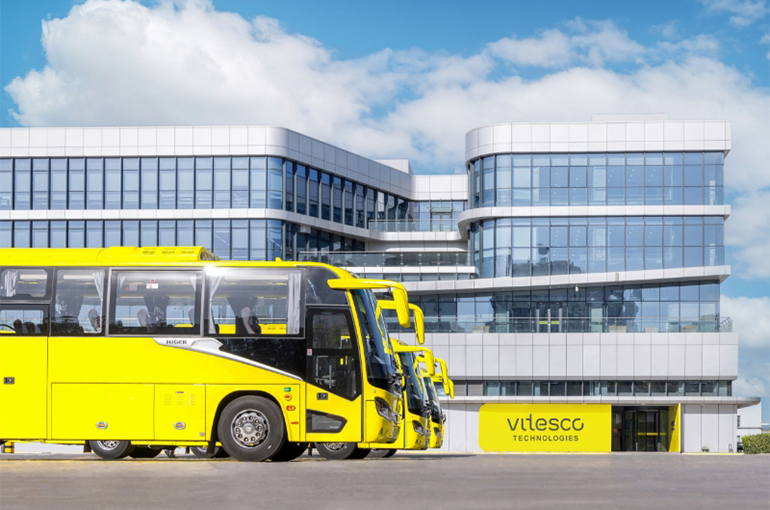 German Mobility Firm Vitesco to Double Down on ESG Goals After Agreeing to Schaeffler Merger
German Mobility Firm Vitesco to Double Down on ESG Goals After Agreeing to Schaeffler Merger(Yicai) April 18 -- Vitesco Technologies will not stop but bolster its green push, the China director of environmental, social, and governance said after Vitesco, which used to be part of Continental, agreed to a merger with Schaeffler, another German maker of car parts.
Dr. Anja Rivera de la Cruz, head of sustainability and security at Vitesco, is set to become the global head of sustainability for the post-merger company, Zhang Juying said to Yicai recently.
The Schaeffler family controls Vitesco and Schaeffler. The two firms agreed to merge last month in Schaeffler's attempt to improve its competitiveness in the hot sector of electric vehicles. The combined entity will comprise four divisions while Vitesco's expertise in electrification will play a role in the e-mobility division. Successful initiatives undertaken by Vitesco in recent years, along with actions conducive to corporate development, are expected to be carried over to the new entity.
As a core member of Vitesco's global sustainability team, Zhang has witnessed a widespread commitment to cutting carbon emissions with a focus on long-term goals instead of short-term gains. Companies with a long history such as Continental and Schaeffler put great value on ESG, she added.
Sustainability
The maker of powertrain and drivetrain technologies made fresh leaps in sustainability last year.
"Thanks to our passionate team and our strong ambition to be a ‘Driver of Sustainability’, we managed to further embed sustainability in our business processes in 2023," Cruz wrote in Vitesco's third independent green development report recently.
Vitesco refined its sustainability agenda last year. The six existing themes of clean mobility, climate protection, resource efficiency and circularity, fair work and diversity, responsible sourcing and partnerships, as well as occupational health and safety, were joined by a seventh theme: business ethics and compliance.
The report revealed some milestones. Revenue from electric solutions made up 14 percent of the total last year, up from a 12 percent share in 2022. An enlarging share of 95.2 percent of waste was recycled, up from 94.6 percent, achieving the goal of 95 percent by 2030. The number of accidents per million work hours fell to 1.4 last year from 1.7 in 2022.
The company aims to reduce its greenhouse gas emissions by 25 percent by 2030 and achieve full decarbonization across its entire value chain by 2040 from the base year 2021.
China Achievements
In 2019, Vitesco's carbon dioxide emissions in China accounted for approximately 30 percent of its global total. Through initiatives such as solar power generation and energy-saving projects, emissions have been steadily decreasing, bringing the company closer to its goal of reaching carbon neutrality by 2030.
Last year, Vitesco China saved nearly 1,680 megawatt-hours of energy. Its Changchun plant has slashed its annual CO2 emissions by 350 tons by implementing air pressure control and heat recovery.
Moreover, its self-constructed solar power stations on the roofs or parking lots of the Wuhu and Tianjin plants generate up to 2,300 MWh of energy each year, resulting in a reduction of up to 2,000 tons of CO2 emissions. The company's efforts extend to transportation as electric buses replace gas-powered ones, resulting in substantial benefits for the environment.
The firm plans to further expand its existing photovoltaic system in Tianjin. It plans to replace the steam heating system with a heat pump this year as the corresponding feasibility study is already completed.
Zhang also mentioned Vitesco's involvement in a public welfare project about tea production in rural China. The Mother's Tea Garden project was initiated in collaboration with the China Women's Development Foundation in 2021 to help increase farmers' pay through sustainable tea production with nearly five hectares of land.
Zhang concluded she has shared progress on the project with the core group to foster broader awareness and more support for such initiatives.
Editor: Emmi Laine